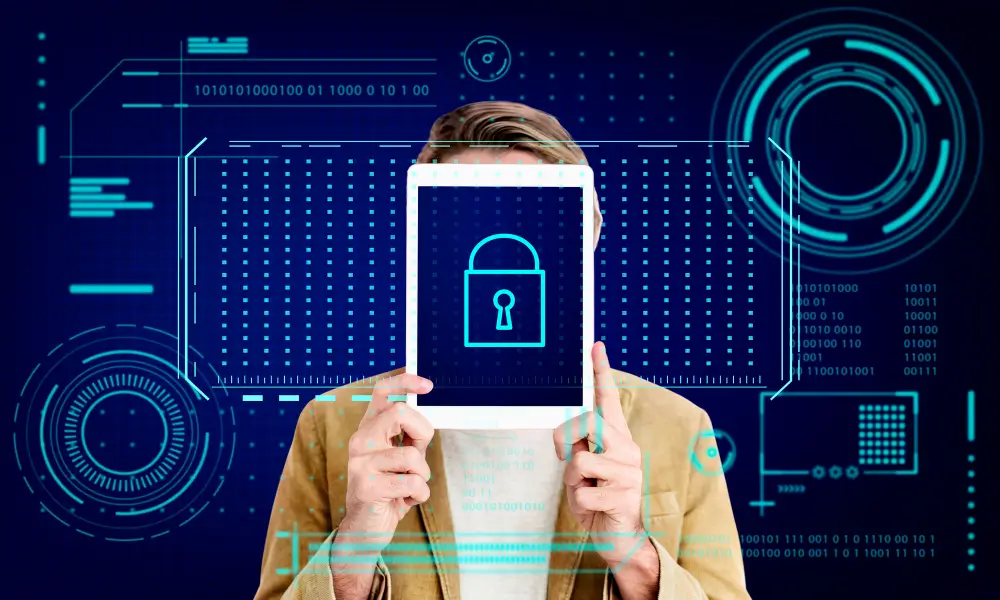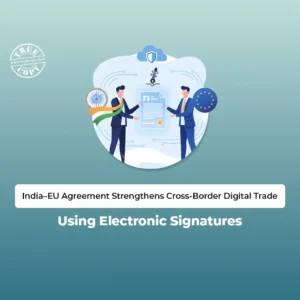Identity verification has become increasingly important in the current digital era due to the shift to electronic transactions and the growth of remote activities. Verifying the legitimacy of a signer’s identity has become essential to the security of any transaction as more interactions shift online. Ensuring that the person signing is who they say they are is crucial, whether you are completing a complicated business agreement, a new apartment lease, or any other kind of contract. This thorough blog covers the fundamentals of identity verification in contract signing, emphasizes its significance, and looks at technological developments that propel its broad use.
Why is Identity Verification Important?

Verifying someone’s identity is crucial in ensuring the person signing a contract is who they say they are. This is necessary to stop fraud, forgeries, and illegal access to private data. Because no physical presence is involved in digital contract signing, identity verification becomes even more important.
Verifying identities promotes trust amongst contracting parties. It ensures that both parties are real, making transactions easier and safer. This can make the difference for businesses between a contract enforceable by law and a possible legal conflict.
What is Identity Verification in Contract Signing?
When someone signs a contract electronically, identity verification ensures they are who they say they are. Various techniques, including biometric information, official identification cards, and strong passwords, are usually used to accomplish this.
Identity verification is implemented into eSignature platforms to offer a safe and trustworthy way to validate the signer’s identity. This improves the security of the entire digital contract signing process and guarantees the signature’s authenticity. Tools such as TRUESigner ONE, which provide strong eSignature solutions with extensive identity verification features, are expressly made to make this process easier.
What is the Difference Between ID Verification, Authentication, and Authorization?
Understanding the distinctions between ID verification, authentication, and authorization is crucial for implementing a secure digital contract signing solution.
- ID Verification is the process of verifying a person’s identity using various methods, such as government-issued IDs, biometric data, or other identifying documents. In the context of eSignature applications, ID verification ensures that the person signing the document is indeed who they claim to be.
- Authentication: Once an identity is verified, authentication ensures that the person is who they say they are when signing. This could involve entering a password, using a biometric scan, or receiving a one-time passcode on their mobile device.
- Authorization: This process determines what actions the verified and authenticated person can perform. For example, in a digital secure contract signing scenario, authorization ensures that the person has the necessary permissions to sign the document.
Technology in Identity Verification
The technology behind identity verification has evolved significantly, making the process more secure and user-friendly. Here are some of the key technologies used in identity verification for eSignatures:
- Biometric Verification involves using unique biological characteristics, such as fingerprints, facial recognition, or iris scans, to verify identity. It is highly secure and difficult to forge.
- Two-Factor Authentication (2FA): This adds an extra layer of security by requiring two forms of identification before granting access. For example, users might need to enter a password and confirm their identity through a code sent to their mobile device.
- Artificial Intelligence (AI): AI can analyze patterns and detect anomalies that might indicate fraudulent activity. It can also streamline the verification process by cross-referencing data from multiple sources.
- Blockchain: This technology ensures that the identity verification data is immutable and transparent, providing a reliable audit trail for all transactions.
Benefits of Identity Verification
Implementing identity verification in with the legal compliance contract signing process offers several key benefits:
- Enhanced Security: Identity verification significantly reduces the risk of fraud and unauthorized access by ensuring that only authorized individuals can sign documents.
- Legal Compliance: Many industries require stringent identity verification processes to comply with legal standards. Tools like TRUESigner ONE provide features that ensure legal compliance when signing contracts.
- Increased Trust: Parties involved in a contract can have greater confidence that the agreements are genuine and legally binding.
- Efficiency: Automated identity verification processes can speed up the digital contract signing process, saving time and reducing the need for manual checks.
- User Experience: Modern eSignature solutions integrate identity verification seamlessly, providing users with a smooth and hassle-free experience.
Summing up
Identity verification is an essential part of legal compliance in contract signing. By comprehending its significance and utilizing cutting-edge technologies, companies and individuals can guarantee that their contracts are authentic and safe. Strong identity verification procedures may be included in all digital transactions to improve security, effectiveness, and trust. One such solution is TRUESigner ONE.
By following these recommendations and using the newest technology, you can guarantee the security, effectiveness, and legal compliance of your digital contract signing process. Investing in a trustworthy identity verification procedure is crucial for protecting your interests and establishing confidence in the digital era, whether you’re an individual or a business.



